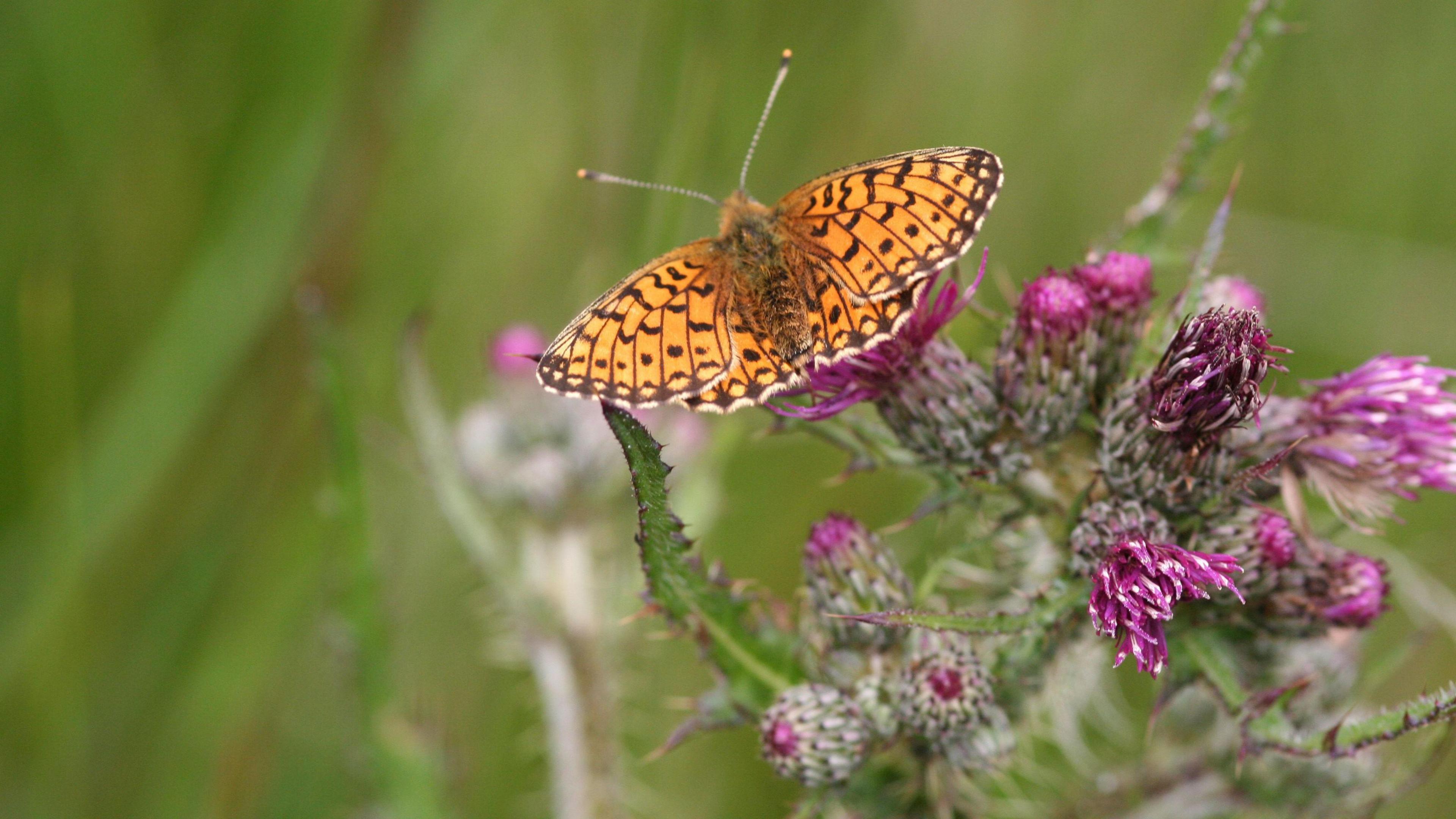Rare bee sighting a 'conservation success story'
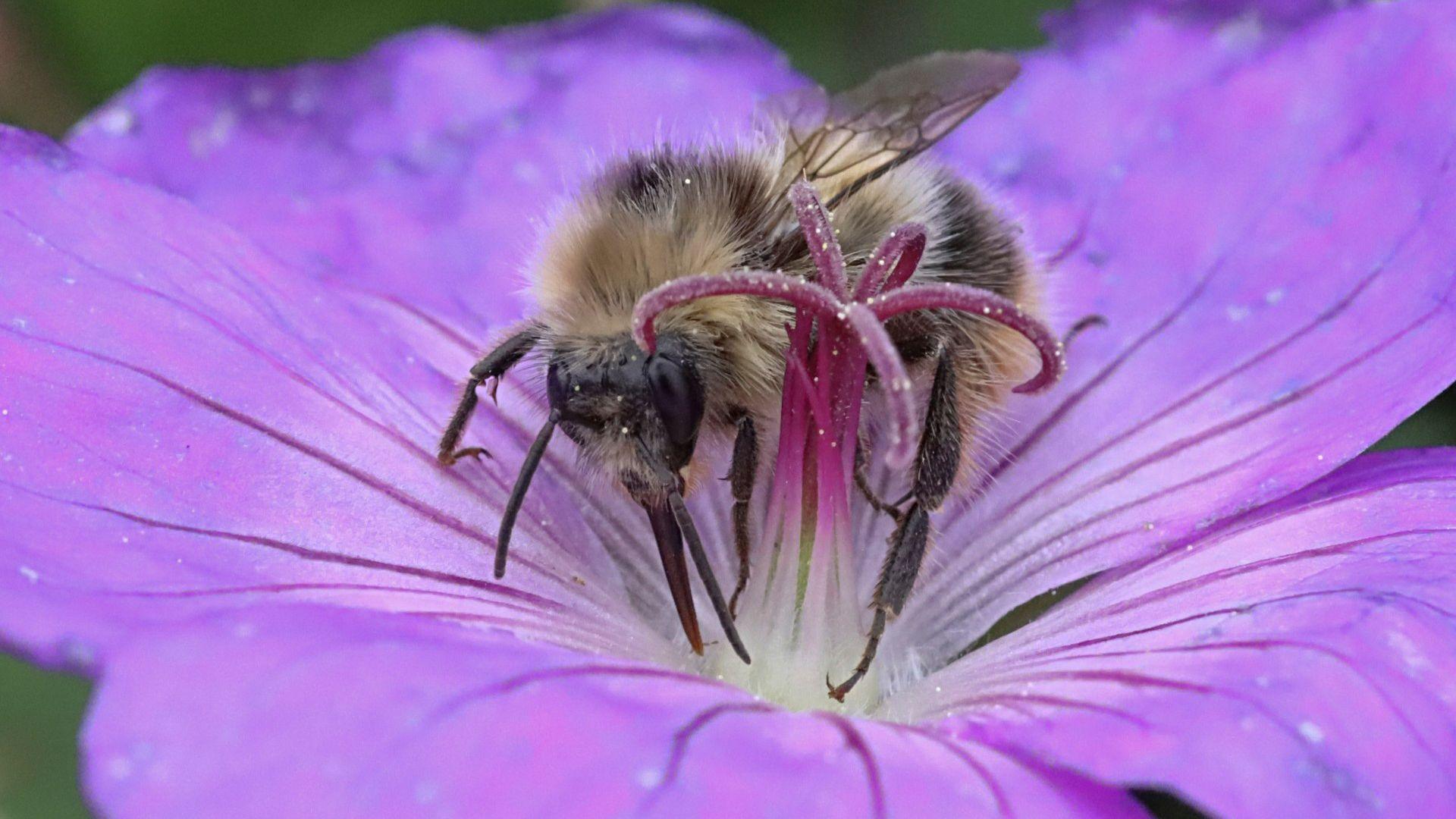
A shrill carder bee has not been seen in the Romney Marsh area of the county for more than a decade
- Published
One of the UK’s rarest species of bumblebee has been spotted on a small holding in Kent, despite it being one of the worst years on record for insect recordings.
A shrill carder bee has not been seen in the Romney Marsh area of the county for more than a decade, but conservationists say its presence is thanks to dedicated work in improving its habitat.
The shrill carder is a priority species for conservation efforts in England and Wales following significant declines since the 1950s.
Dr Nikki Gammans, from the Bumblebee Conservation Trust, said: “This is a conservation success story in a terrible year for the UK’s bumblebees."
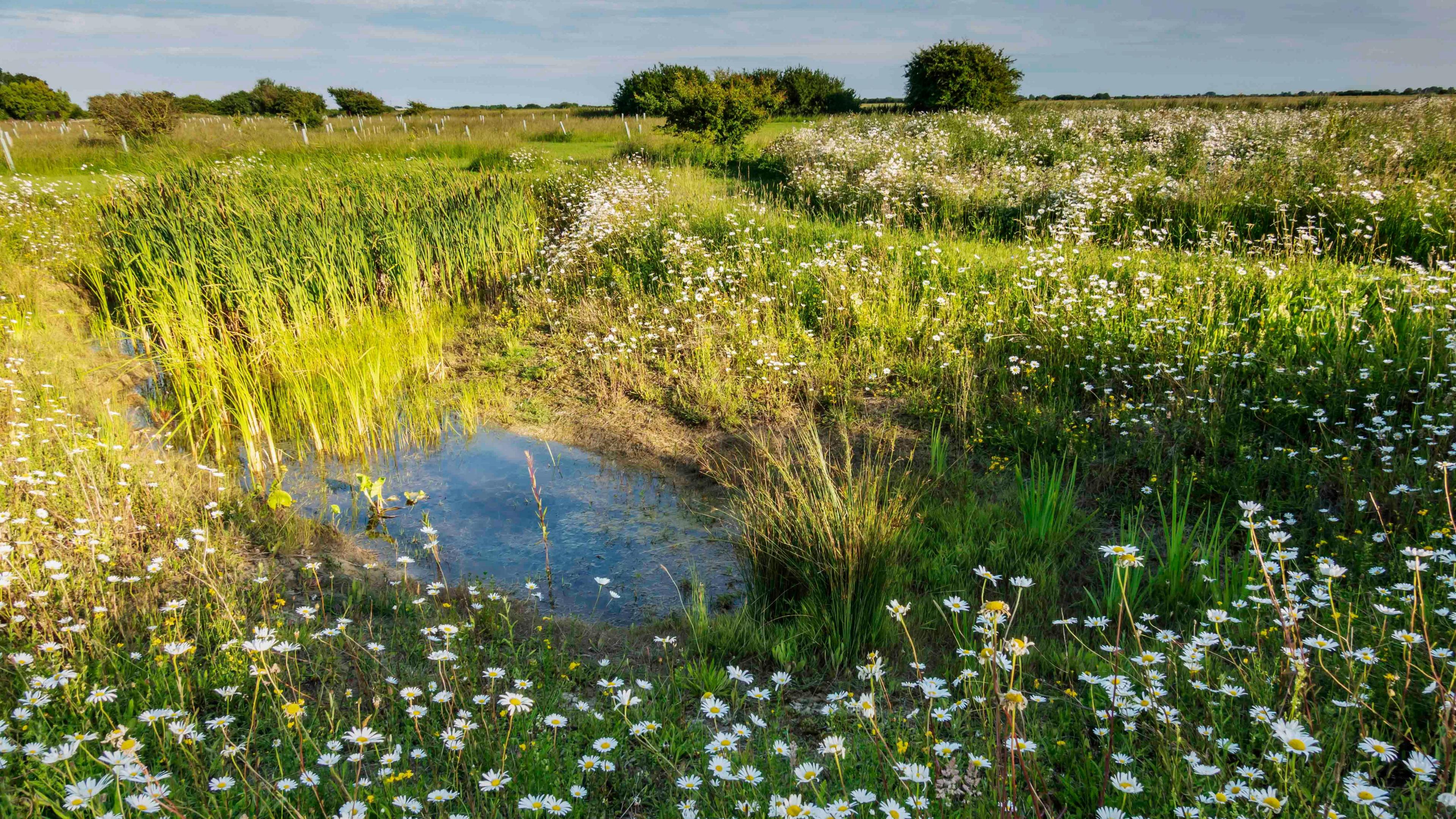
Conservationists say the sighting is thanks to dedicated work in improving its habitat
Dr Gammans explained: "It shows restoring and improving flower-rich habitats for bumblebees really does work.”
Low numbers have been recorded for many species of bumblebees in the UK in 2024.
In particular, records of one of the country's most common species, the red-tailed bumblebee, was down 50% for the year.
Conservationists say the reason for the low numbers is likely to be the cold and wet weather during the spring on top of the long-term impacts of climate change, ongoing habitat loss and increasing urbanisation.
Habitat restoration on the small holding where the bee was found had taken place over three years and included a wildflower meadow, gardens, native trees and two new ponds.
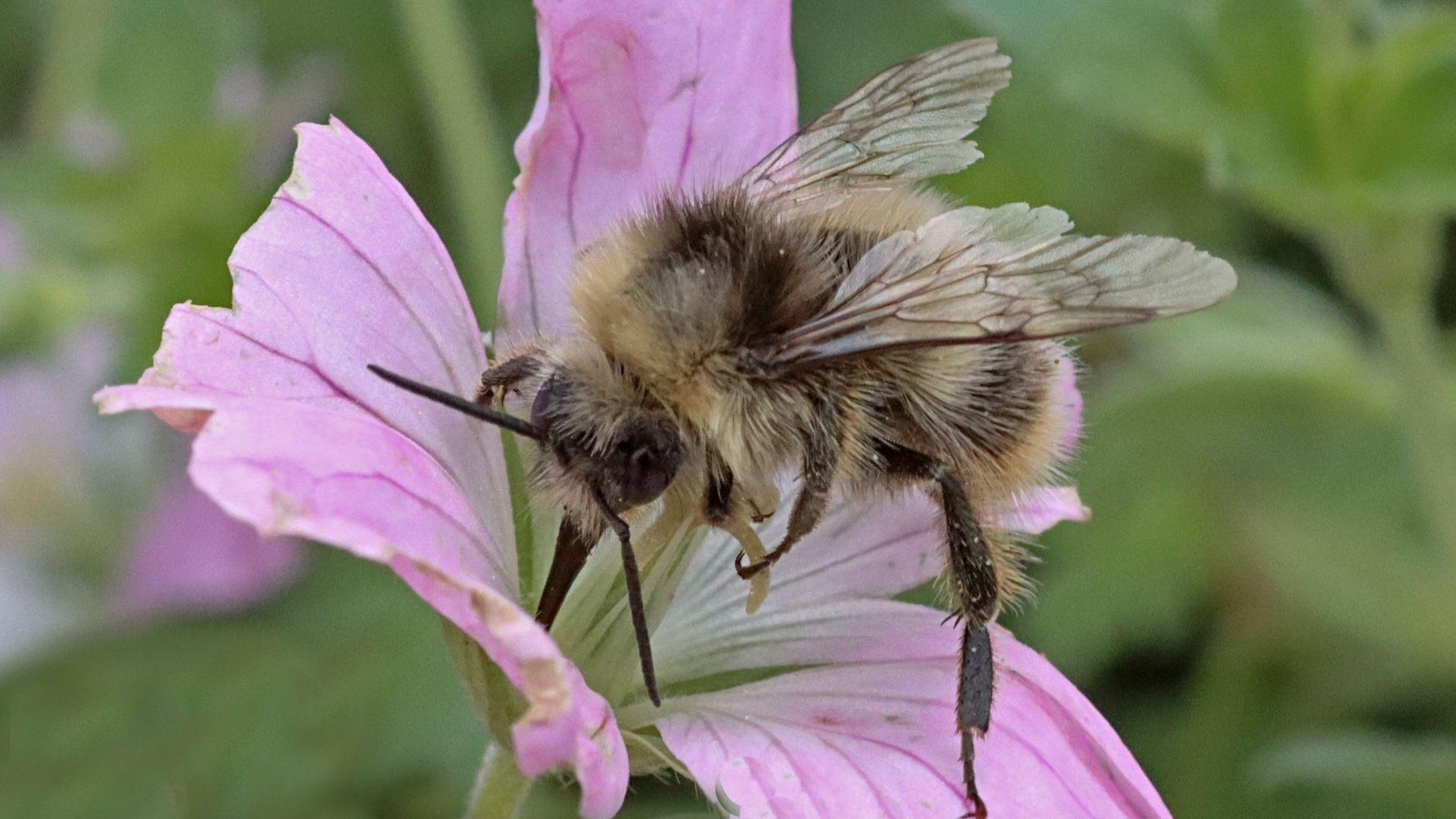
Low numbers have been recorded for many species of bumblebees in the UK in 2024
Dr Gammans said: "Not only have we re-recorded the shrill carder bumblebee after a 12-year absence, but two other rare bumblebee species - the brown-banded and the ruderal - have been recorded in new areas where we’ve helped restore flower-rich habitats across Kent and East Sussex.”
The work is part of the Bumblebee Conservation Trust’s Bee Connected project in south-east Kent, providing safe havens for pollinators and other wildlife in an effort to reverse the decline of species.
Follow BBC Kent on Facebook, external, on X, external, and on Instagram, external. Send your story ideas to southeasttoday@bbc.co.uk, external or WhatsApp us on 08081 002250.
Related topics
- Published4 July 2024
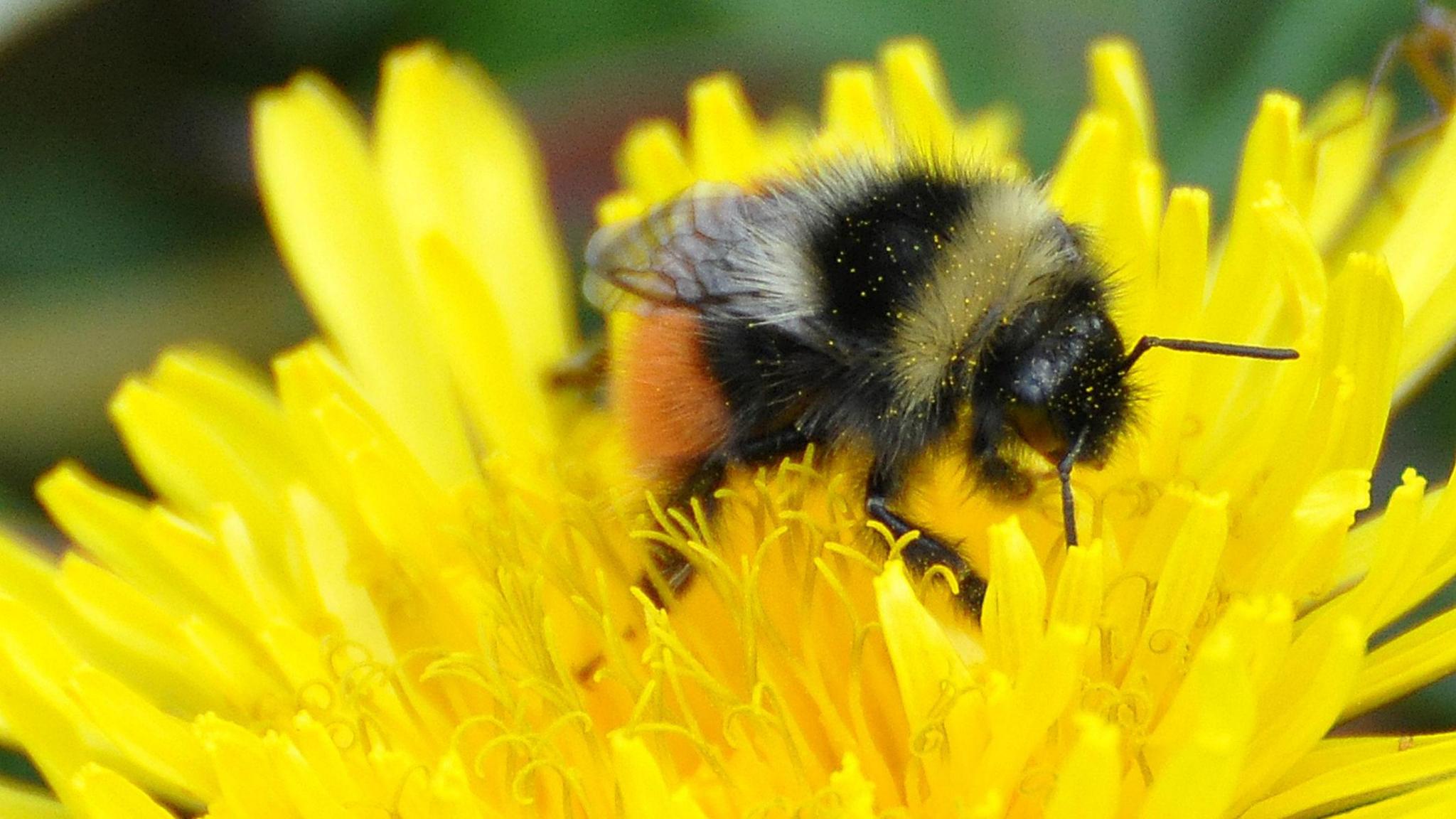
- Published7 February 2020
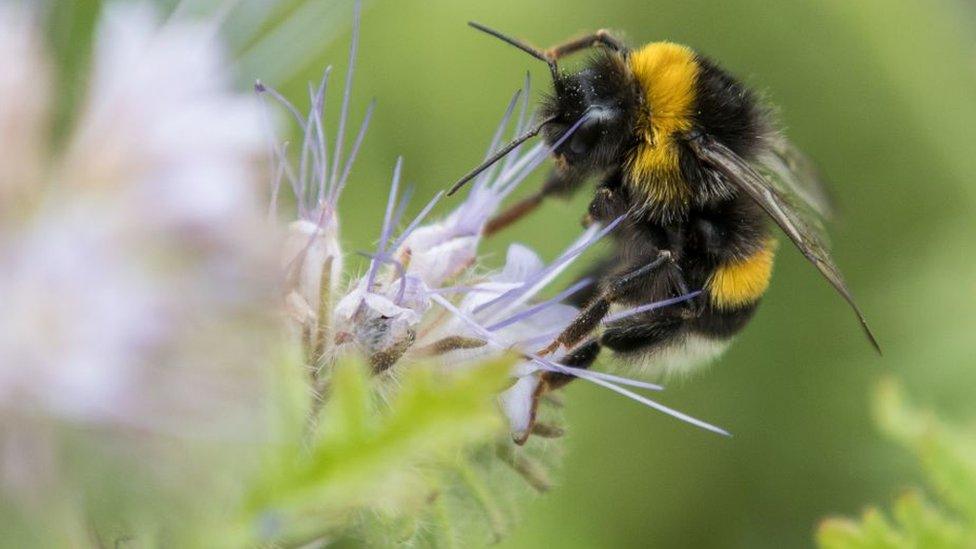
- Published10 May 2024
